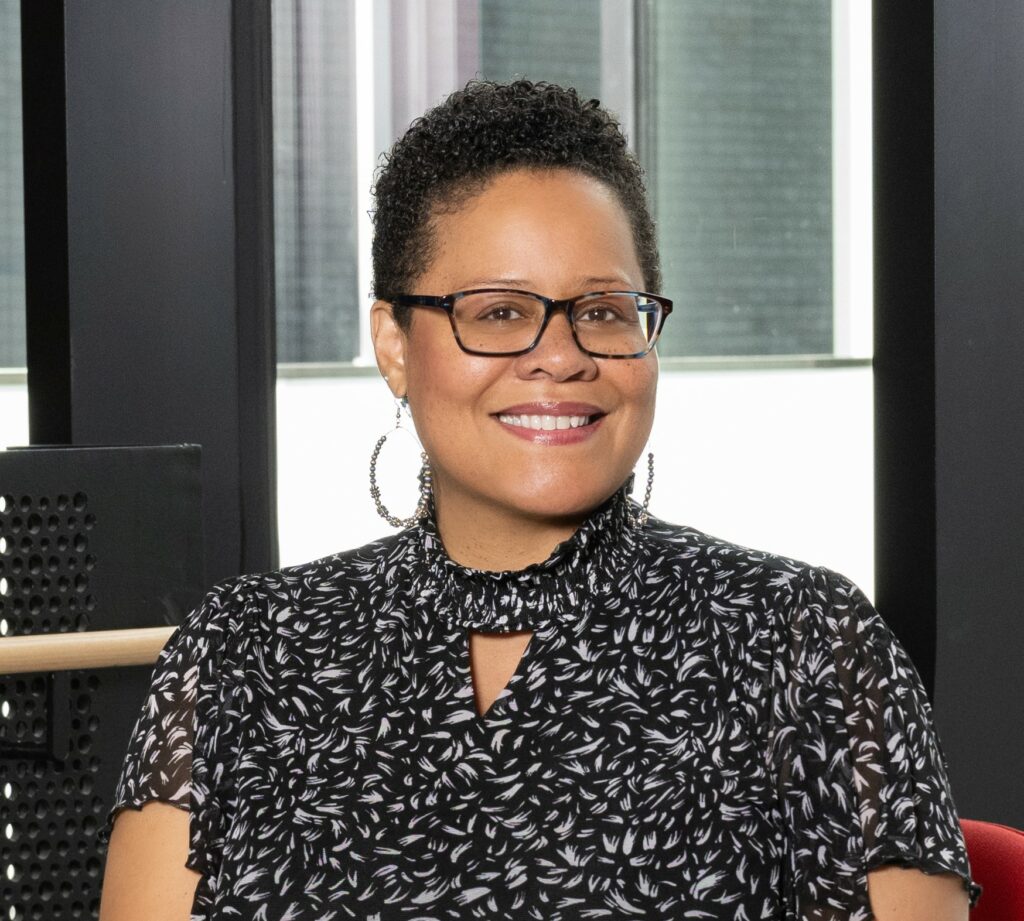By Suzanna de Baca, president and CEO, Business Publications Corp.
“That man over there says that women need to be helped into carriages, and lifted over ditches, and to have the best place everywhere. Nobody ever helps me into carriages, or over mud-puddles, or gives me any best place! And ain’t I a woman?”
Sojourner Truth, from her speech at the 1851 Women’s Rights Convention in Akron, Ohio.

In honor of Women’s History Month, LaNisha Cassell, executive director of the African American Museum of Iowa (AAMI), commissioned a video reading of former slave and evangelist Sojourner Truth’s 1851 speech titled “Ain’t I a Woman?”
Now recognized as one of the most famous abolitionist and women’s rights discourses in American history, the speech is as relevant today as ever. The interpretive reading done by Abena Imhotep, Des Moines author, activist and executive director of Sankofa Literary and Empowerment Group, reminds us that the journey to advance all women’s rights is far from over.
I talked with Cassell, a Washington, D.C., native who has been at the helm of AAMI since 2017, to find out more about why she chose to highlight this famous speech, as well as to learn more about the AAMI and her own fearless journey.
Why is understanding history so vital? And more specifically, why is it so important that we observe Women’s History Month?
Knowing our full history is essential to understanding our current societal systems. Commemorating Women’s History Month helps to shine the light on not only the struggles women have had and continue to face, but also the contributions women have been instrumental in elevating our world for good. It’s a reminder that women bring value to every conversation, initiative and solution.
The AAMI is located in Cedar Rapids but represents the entire state. What are some parts of the AAMI that specifically address the role of women or lift up iconic women from Iowa?
Both the museum’s permanent exhibit, “Endless Possibilities,” and our annual changing exhibit give space for African American women. A woman that stands out in our permanent exhibit, and that Central Iowans will recognize, is Edna Griffin. Griffin made history when she sued the Katz [Drug Store] for withholding service at the Des Moines establishment in 1948. Griffin’s case went to the Iowa Supreme Court, and she won. In addition to our gallery exhibits, we also have a variety of traditional pop-up-style traveling exhibits. A popular one, featuring African Americans in the military, “Unconditional Loyalty,” has a panel dedicated to women. We also convene yearlong programming on- and off-site, virtually and with statewide partners. Other iconic women we’ve featured include LaMetta Wynn, Freda Long, Viola Gibson, Gertrude Rush, Minnie London, Grace Allen Jones, Pauline Humphreys, Phoebe Smith, Charlotta Pyles, the Haddix sisters and more.
Tell us about some of AAMI’s firsthand accounts of life as an African American woman in Iowa that are captured in videos in your oral history projects.
The common theme among the oral histories of African American women I’ve seen describe the struggle to be seen and heard, to be valued as a person who brings something to the table. Stories also include the desire to be treated with dignity, respect and humanity. “Inalienable rights” for Black women continue to be a challenge in the past and the present.
You’ve just highlighted Sojourner Truth’s iconic speech “Ain’t I a Woman?” – which was delivered in 1851 at the Women’s Rights Convention in the Old Stone Church in Akron, Ohio – in an interpretation done by local author Abena Imhotep. Why is this speech so important for all women?
Sojourner Truth’s speech was delivered in Ohio — the Midwest, like Iowa. It was powerful, timely, and undoubtedly home to similar beliefs about Black people and women during the era. She spoke of her hardships, those specifically endured by Black women. Her speech was important then and now because it shined a light on the obvious disparities of her day and maybe more subtle ones of today. It’s a reminder to be attuned to what’s happening around you. I chose this speech to bring attention to the continued plight of women, particularly Black and brown women. Many people today are surprised to learn that Sojourner Truth’s native tongue was Dutch, which means the transcription was manufactured to fit a certain narrative of Black people and women at the time. That little-known truth is yet another example of the ways in which history is often distorted and stereotypes perpetuated. But the message remains the same and is relevant today. A common thread among people is that we want to be respected, have dignity and equality. For all of our progress as women, Black and brown women in particular are still fighting for all of these things.
What was a time you were fearless in standing up for the advancement of other women?
I’m often called upon to be the Black voice for specific issues. While that can be empowering, I find that there isn’t a lot of effort to intentionally identify other voices once one has been locked in on, as if my voice is the only voice – or one of few voices – of Black women or Black people. More recently, I’ve advocated for other women by providing lists of potential speakers to not only broaden networks, but to help amplify other Black women’s voices and perspectives. It demonstrates that we are not monolithic in thought.
What message would you like to convey to our Fearless readers about the role women of color have played in Iowa and about the role of women overall in advancing our state?
Great things have happened in Iowa when Black women have been part of the equation. Historically, we’ve had an impact on education, politics, and wages and employment policies – and so much more. Black women bring resiliency to the table. We are accustomed to the “fight” of having to prove ourselves over and over, not being taken as seriously, or being overlooked. Women overall have the element of surprise in our back pocket because we tend to exceed expectations. We are more confident, better at self-advocacy, and have generations of role models that set examples of breaking down barriers.
To learn more about the AAMI, go to https://blackiowa.org.
To view the video of Abena Imhotep interpreting “Ain’t I a Woman?” go to: https://www.youtube.com/watch?v=ds-buwbaszk

